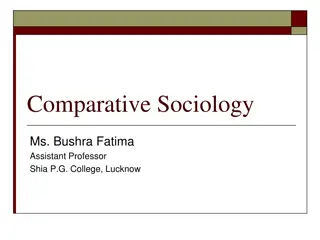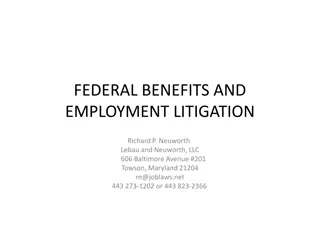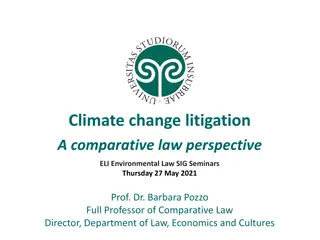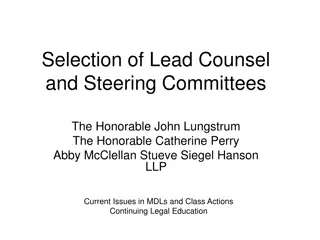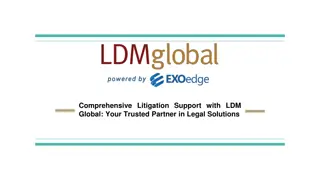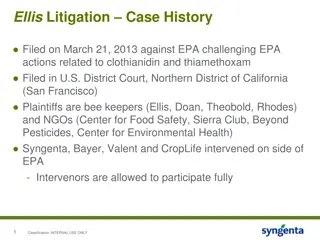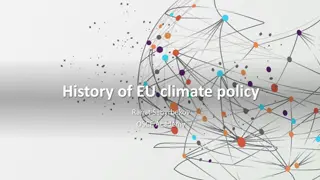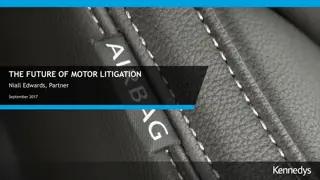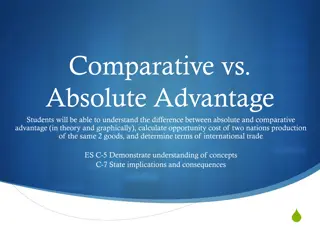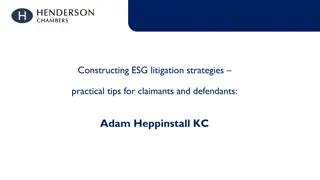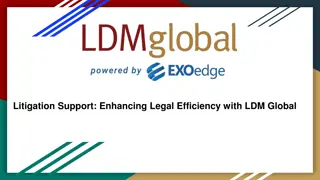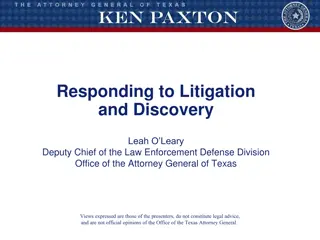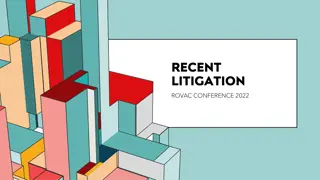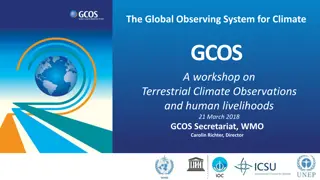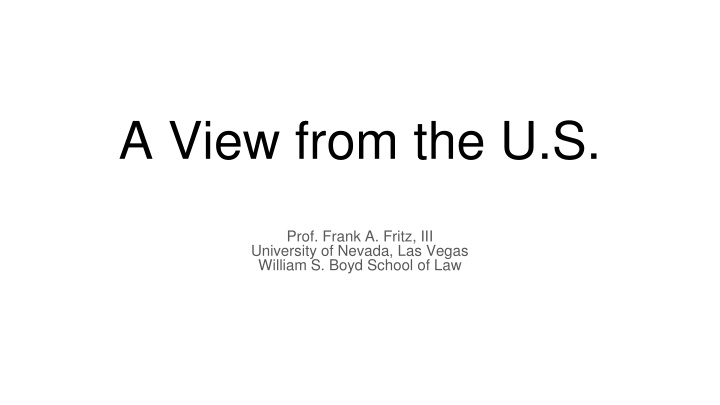
Climate Change Litigation: Evolution and Impact
Explore the evolution of climate change litigation, from the first cases filed in the US and internationally to the current trends in pending cases worldwide. Discover the key transplants and emerging trends in this dynamic legal landscape, including consumer and investor fraud claims, disaster cases, implementation challenges, climate attribution, and international adjudicatory bodies.
Download Presentation

Please find below an Image/Link to download the presentation.
The content on the website is provided AS IS for your information and personal use only. It may not be sold, licensed, or shared on other websites without obtaining consent from the author. If you encounter any issues during the download, it is possible that the publisher has removed the file from their server.
You are allowed to download the files provided on this website for personal or commercial use, subject to the condition that they are used lawfully. All files are the property of their respective owners.
The content on the website is provided AS IS for your information and personal use only. It may not be sold, licensed, or shared on other websites without obtaining consent from the author.
E N D
Presentation Transcript
A View from the U.S. Prof. Frank A. Fritz, III University of Nevada, Las Vegas William S. Boyd School of Law
1986: First Climate Change Case filed in the U.S. City of Los Angeles v. Nat'l Highway Traffic Safety Admin., 912 F.2d 478 (D.C. Cir. 1990) Natural Resources Defense Council petition dismissed for lack of standing argued agency failed to consider effects on global climate when setting corporate average fuel economy (CAFE) for autos. Source: Climate Change Litigation Database (Columbia University, Sabin Center for Climate Change Law; Arnold & Porter)
1994: First Climate Change Case filed outside the U.S. Greenpeace Australia Ltd. v. Redbank Power Co., 86 LGERA 143 (Land & Env t Ct. New South Wales 1994) Australian state court upheld state council decision granting development consent to build a power station. Greenpeace asserted air emissions from station would exacerbate greenhouse effect. Source: Climate Change Litigation Database (Columbia University, Sabin Center for Climate Change Law)
2017-2020: Number of Pending Climate Cases 2017 2020 % Change # of cases 884 1550 +75% # of countries 24 38 +58% # U.S. cases 654 1200 +83% # cases in other countries 230 350 +52% Source: U.N. Env t Prog., Global Climate Litigation Report: 2020 Status Review (2020)
What Transplants May Emerge? From Where to Where? 1. Consumer and investor fraud claims 2. Pre- and post-disaster cases 3. Implementation challenges 4. Increasing attention to climate attribution 5. Increasing use of international adjudicatory bodies Source: U.N. Env t Prog., Global Climate Litigation Report: 2020 Status Review (2020)
Consumer and investor fraud claims City of Birmingham Retirement and Relief System v. Tillerson, 2019 WL 6487316 (U.S. District Court, New Jersey); In re Exxon Mobil Corp. Derivative Litigation (U.S. District Court, Texas 2020) Exxon misled stockholders knew but failed to disclose the catastrophic risk that climate change presents to its business engaged in active disinformation campaign
Consumer and investor fraud claims York County v. Rambo (U.S. District Court, Northern District of California 2019) Bond investors allege Pacific Gas & Electric (PG&E) misled investors Offering documents stated utility had taken appropriate precautions for climate risks, including wildfire Didn t disclose hundreds of fires were started annually by PG&E equipment. Didn t disclose PG&E s own conduct and failure to comply with regulations on maintaining electrical lines PG&E filed for bankruptcy in 2019. Settled, for over $25 billion, claims for its role in causing wildfires in California.
Pre- and post-disaster cases York County v. Rambo (U.S. District Court, Northern District of California 2019) In re PG&E Corporation (U.S. Bankruptcy Court, N.D. Cal. 2019)
Implementation challenges Gbemre v. Shell Petroleum Development Company of Nigeria Ltd. (Federal Court, Nigeria 2005) Shell s flaring of methane from gas production activities on Niger Delta violated human rights to clean and healthy environment under Constitution of Nigeria and African Charter on Human and Peoples Rights Never enforced
Increasing attention to climate attribution How to prove plaintiffs injuries caused by climate change? How to prove defendant substantially contributed to climate change? Assigning climate mitigation obligations to governments and corporations under rights based theories Liability of private actors for contributions to climate change See Michael Burger et al., The Law and Science of Climate Change Attribution, 45 Colum. J. Envtl. L. 57 (2020)
Increasing use of international adjudicatory bodies Abundance of favorable soft law for plaintiffs International fora offer strategic opportunities unavailable in national courts Impact litigation: use international fora to build favorable body of law Sacchi et al. v. Argentina et al., Communication to the Committee on the Rights of the Child (Sept. 23, 2019) children allege Argentina, Brazil, France, Germany, Turkey violated rights under U.N. Convention on the Rights of the Child insufficient cuts to GHG emissions failed to use G20 to encourage the world s largest emitters to curb carbon pollution
Increasing use of international adjudicatory bodies Corporations using international fora Investor-state dispute settlement (ISDS) for bilateral treaties Foreign investors may seek compensation from host governments when regulation imposes costs Potential disincentive to governments pursuing climate regulation Westmoreland Coal Company v. Canada, (ICSID Case No. UNCT/20/3) In 2015, Alberta decided to phase out coal-fired power plants in the province by 2030 Alberta allegedly failed to compensate a U.S. coal company for early closure of mining operations, although Alberta compensated three Canadian local coal mining operators. Under North American Free Trade Agreement (NAFTA)


